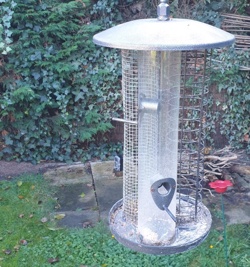News
Are rats attracted to bird feeders?

The wild bird food market in the UK is worth over £200 million per year. However, its not just the birds enjoying all that free food. Pest control companies are seeing an increasing number of call outs for rats in gardens. In many cases the only reason the rats are there is because of the food left out for birds. Generally rats have to search far and wide for food, however with the increase in popularity of feeding wild birds rats don't have to search too far. Bird feeders provide rats with a reliable food source, a food source that gets topped up every few days. Rats would much prefer to have fresh food delivered to them than have to scavenge for it.
Many bird feeders are marketed as being rodent proof, however birds will knock food out of the feeder and onto the floor. Regardless of how high you site the feeder this will still happen. A rat may pass through your garden every now and again and unless they find food they will continue on to the next garden. However, rats are habitual and if they find even a small amount of spilled bird seed they will visit again the following night. After several nights of successful foraging the rat will begin to look for somewhere close to its new found food source to make a home.
Garden decking and underneath sheds are places rats often call home. The shelter is secondary, its not the main reason they are there but it is something they need. Once settled numbers will often rapidly increase, rats breed at an alarming rate and can produce around 6 litters of 10 to 12 baby rats per year. It only takes a couple of months for those rats to reach reach sexual maturity. meaning within just a few months you could have several dozen rats living in your garden.
The longer rats spend in your garden the greater risk that one or more of them will eventually find their way inside your home.


